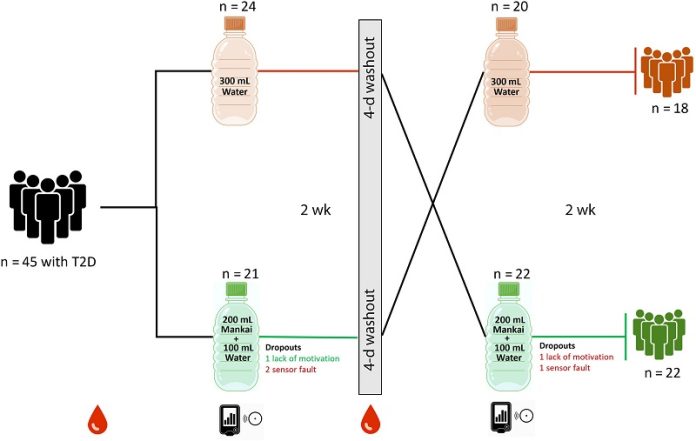
A groundbreaking study conducted by Sheba Medical Center and Ben-Gurion University in Israel has revealed that consuming Mankai, a unique aquatic plant, can significantly lower blood sugar levels in people with diabetes.
The research, published in the journal Diabetes, Obesity and Metabolism, suggests that Mankai’s ability to reduce blood sugar is similar to the effects of some diabetes medications.
For individuals with type 2 diabetes, high blood sugar levels after meals are a serious concern.
This issue is often worsened by insulin resistance, a condition where the body’s insulin becomes less effective at lowering blood sugar.
Over time, consistently high blood sugar can damage blood vessels, harm the peripheral nervous system, and increase the risk of severe complications like heart attacks, strokes, kidney failure, blindness, and loss of sensation in the limbs.
The research team, led by Professor Amir Tirosh from Sheba Medical Center, along with Dr. Gal Tsaban and Professor Iris Shai from Ben-Gurion University, explored how Mankai could help manage blood sugar levels after meals. Mankai is rich in protein, dietary fiber, and antioxidants, making it a potentially powerful tool for improving health.
In the study, participants with type 2 diabetes were given a Mankai beverage to drink after dinner. The results were impressive: those who consumed the Mankai drink experienced about a 20% reduction in their post-meal blood sugar levels. They also had lower peak sugar levels and returned to normal blood sugar levels more quickly. This positive effect was seen in around two-thirds of the participants.
The study involved 45 individuals with diabetes who had glycosylated hemoglobin (A1c) levels between 6.5% and 8.5%, a common measure of long-term blood sugar control. Participants were randomly divided into two groups: one group drank 300 ml of Mankai after dinner, while the other drank an equal amount of water. After two weeks, the groups switched drinks. Blood sugar levels were closely monitored throughout the study using glucose sensors and standard lab tests.
Mankai, which naturally grows in water and is now cultivated under controlled conditions, has shown promise in earlier research for its benefits to vascular and brain health, reducing fat in the abdomen and liver, and improving the gut microbiome. Even for people without diabetes, early studies suggest that Mankai might help lower blood sugar levels after meals.
Dr. Gal Tsaban noted, “This study shows that Mankai can significantly reduce blood sugar levels after meals, offering a new and promising option for managing diabetes and its complications.”
Professor Iris Shai emphasized the potential of Mankai in diabetes care, adding, “These findings open the door to further research into how Mankai can be used in managing diabetes.”
Professor Amir Tirosh concluded, “Nutrition is key in both preventing and managing diabetes. Adding Mankai to the diet could improve blood sugar control and provide essential nutrients that support overall health.”
If you care about diabetes, please read studies about bananas and diabetes, and honey could help control blood sugar.
For more information about diabetes, please see recent studies about Vitamin D that may reduce dangerous complications in diabetes and results showing plant-based protein foods may help reverse type 2 diabetes.





